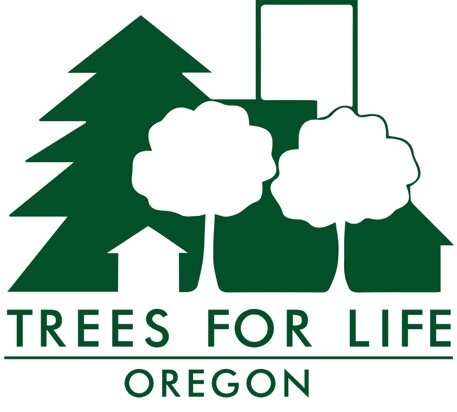Tree Summit Reports Latest Portland Canopy Data
Portland overall has 29.8 percent tree canopy coverage, with a current goal to reach 33.3 percent. Consistent with past trends, the eastside, where 80 percent of city residents live, has only 26 percent coverage, while the westside has 56 percent.
These are some of the statistics that Parks & Recreation’s Urban Forestry presented at this year’s tree summit, held on March 2 in Northeast Portland at Rigler Elementary School.
Urban Forestry has not yet completed its latest tree inventory, which staff call the 2022-2024 Street Tree Inventory 2.0. Previous inventories, of street and park trees, took place between 2010 and 2019. At the tree summit staff provided the latest data, collected in 2022 and 2023. They will continue the work through 2024.
They also introduced Tree Canopy Explorer PDX, an interactive, public-access map-based tool anyone can use to view canopy density, or lack thereof, in individual neighborhoods. Importantly for those interested in tree advocacy during elections for our restructured City Council, maps also show canopy by new election districts.
The tool’s maps are based on 2019 Metro LIDAR surveys and aerial imagery and reveal which areas of the city need more canopy and should be targeted for planting. Users can click on any neighborhood to find 2019 canopy coverage while seeing next to it a map indicating percentage change in canopy since 2014. The tool indicates tree heights by color. Maps spotlight parks, urban heat, where Urban Forestry is focusing its tree planting program, and other variables.
More tree summit highlights:
—Portland’s urban forest comprises more than 4 million trees: 243,000 street trees, 1.2 million park trees, and 2.9 million on private properties.
—Large-form trees make up 24 percent of street trees, up from 20 percent in the last inventory. But UF says we still have plenty of missed opportunities to plant big trees due to underplanting. That’s because half of the city’s large- and medium-size planting strips are currently holding small-form trees.
—Past inventories have showed a lack of street tree diversity, with a preponderance of maples, cherries, plums, pears, and dogwoods. A positive trend found so far in the current inventory is a decrease in some of our overplanted trees, many of which are short-lived and/or vulnerable to pests and disease. The presence of newly planted Norway maples, a shade-giving but invasive species heavily dotting our landscape, is shrinking. The number of oaks, a robust genus, is growing.
From Portland Parks & Recreation/Urban Forestry’s March 2nd, 2024 Tree Summit presentation.
Also, at the tree summit, UF’s Belinda Judelman reported on the Portland Urban Forest Plan Update. This planning document matters to tree advocates because it will guide and inform the tree code revision scheduled to take place in a few years. She announced that the first open house for hearing the public’s priorities and vision for our urban forest will be held on the evening of Wednesday, April 24, from 5 p.m. to 7:30 p.m. at McDaniel High School on SE 82nd Avenue.
Other tree summit speakers included representatives from the multi-partner program Connecting Canopies who spoke about a workforce training initiative for BIPOC youth. David Grandfield of the Portland Clean Energy Fund outlined PCEF’s Equitable Tree Canopy Program, whose first five-year plan (2023-2028) won’t start until the end of 2025. The program will plant 15,000 trees on public and private property, provide five years of tree maintenance using for-profit and nonprofit contractors, and offer enhanced support for community-based organizations (to help increase their capacity for tree planting). Grandfield announced that PCEF is now seeking nonprofits or contractors to help extend outreach for yard tree giveaways. In addition, PCEF mini-grants of up to $5,000 will be available for activities that address climate action while advocating for racial and social justice. The grant deadlines will be January 1, April 1, July 1, and October 1.
You can access all tree summit speakers’ presentations here. Note that octogenarian Ed Washington, a past Urban Forestry Commission chair and current Community Liaison for Diversity Initiatives & Inclusion at PSU, presented a very inspiring keynote address reflecting his long view of bringing about change.

